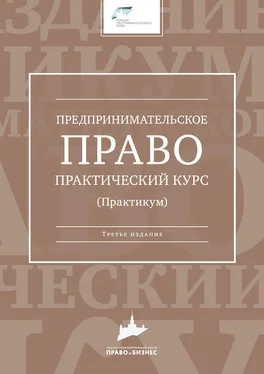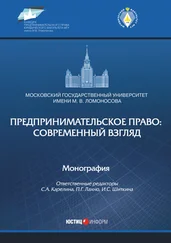Comment: The existence of a corporate compliance program, even one that specifically prohibited the very conduct in question, does not absolve the corporation from criminal liability…. While the Department recognizes that no compliance program can ever prevent all criminal activity by a corporation’s employees, the critical factors in evaluating any program are whether the program is adequately designed for maximum effectiveness in preventing and detecting wrongdoing by employees and whether corporate management is enforcing the program or is tacitly encouraging or pressuring employees to engage in misconduct to achieve business objectives. The Department has no formulaic requirements regarding corporate compliance programs. The fundamental questions any prosecutor should ask are: Is the corporation’s compliance program well designed? Is the program being applied earnestly and in good faith? Does the corporation’s compliance program work? In answering these questions, the prosecutor should consider the comprehensiveness of the compliance program; the extent and pervasiveness of the criminal misconduct; the number and level of the corporate employees involved; the seriousness, duration, and frequency of the misconduct; and any remedial actions taken by the corporation, including, for example, disciplinary action against past violators uncovered by the prior compliance program, and revisions to corporate compliance programs in light of lessons learned. Prosecutors should also consider the promptness of any disclosure of wrongdoing to the government. In evaluating compliance programs, prosecutors may consider whether the corporation has established corporate governance mechanisms that can effectively detect and prevent misconduct. For example, do the corporation’s directors exercise independent review over proposed corporate actions rather than unquestioningly ratifying officers’ recommendations; are internal audit functions conducted at a level sufficient to ensure their independence and accuracy; and have the directors established an information and reporting system in the organization reasonably designed to provide management and directors with timely and accurate information sufficient to allow them to reach an informed decision regarding the organization’s compliance with the law.
Prosecutors should therefore attempt to determine whether a corporation’s compliance program is merely a «paper program» or whether it was designed, implemented, reviewed, and revised, as appropriate, in an effective manner. In addition, prosecutors should determine whether the corporation has provided for a staff sufficient to audit, document, analyze, and utilize the results of the corporation’s compliance efforts. Prosecutors also should determine whether the corporation’s employees are adequately informed about the compliance program and are convinced of the corporation’s commitment to it. This will enable the prosecutor to make an informed decision as to whether the corporation has adopted and implemented a truly effective compliance program that, when consistent with other federal law enforcement policies, may result in a decision to charge only the corporation’s employees and agents or to mitigate charges or sanctions against the corporation…»
Насколько обоснованно и эффективно учитывать комплайенс-программы при привлечении корпораций к ответственности?
1. Каковы основные задачи правовой работы в сфере предпринимательства?
2. Какие формы правового обеспечения предпринимательской деятельности вам известны?
3. Кто может быть представителем коммерческой организации в гражданском и уголовном судопроизводстве, в судопроизводстве по делам об административных правонарушениях?
4. Каковы структура, функции юридических служб коммерческих организаций в современных условиях? Охарактеризуйте каждое направление деятельности юридической службы.
5. Каковы цели: 1) договорно-правовой и 2) претензионно-исковой работы в коммерческой организации?
6. Перечислите задачи юридической службы, связанные с корпоративной работой.
7. Каковы обязанности корпоративного юриста по обеспечению раскрытия информации в публичном акционерном обществе?
9. Что такое внутренние документы коммерческой организации? Как соотносятся понятия «внутренние документы», «внутренние регламенты», «локальные нормативные акты», «корпоративные акты», «стандарты организации», разрабатываемые в системе менеджмента качества?
Аристотель. Соч. в 4-х томах. Т. 4. М.: Мысль. 1984. С. 31.
Леонтьев А. Н. Деятельность. Сознание. Личность. М., 1975. С. 82.
См.: Конституция Российской Федерации: Науч. – практ. комментарий / под ред. Б. Н. Топорнина. М., 1997. С. 95.
Гаджиев Г. А. Конституционные основы предпринимательства // Хозяйство и право. 1994. № 11.
Предпринимательское право Российской Федерации. Отв. ред. Е. П. Губин, П. Г. Лахно. М., Норма, 2010. С. 18, 19 и др.
Шпенглер О. Закат Европы: очерки мифологии мировой истории. М.: «Мысль», 1998. Т. 2. С. 86.
Пугинский Б. И. Коммерческое право России. Издание пятое переработанное и дополненное. М., 2013. С. 17.
Пугинский Б. И. Указ. соч. С. 17–18.
См.: Ст. 62, 63 Воздушного кодекса РФ; ст. 4 Федерального закона 9 июля 1999 г. № 160-ФЗ «Об иностранных инвестициях в Российской Федерации»; Национальный стандарт РФ «Услуги торговли. Общие требования». ГОСТ Р 51304-99 (п.7414).
Правовое регулирование торговой деятельности в России (теория и практика). Монография. Отв. ред. док. юрид. наук, проф. Л. В. Андреева. М., 2014. С. 23.
Цитович П. Учебник торгового права. Киев. 1891. С. 1–2.
Федоров А. Ф. Торговое право. Одесса. 1911. С. 5.
Читать дальше
Конец ознакомительного отрывка
Купить книгу











![Коллектив авторов - Гражданское право. Части вторая и третья. Краткий курс [litres]](/books/404815/kollektiv-avtorov-grazhdanskoe-pravo-chasti-vtoraya-thumb.webp)
